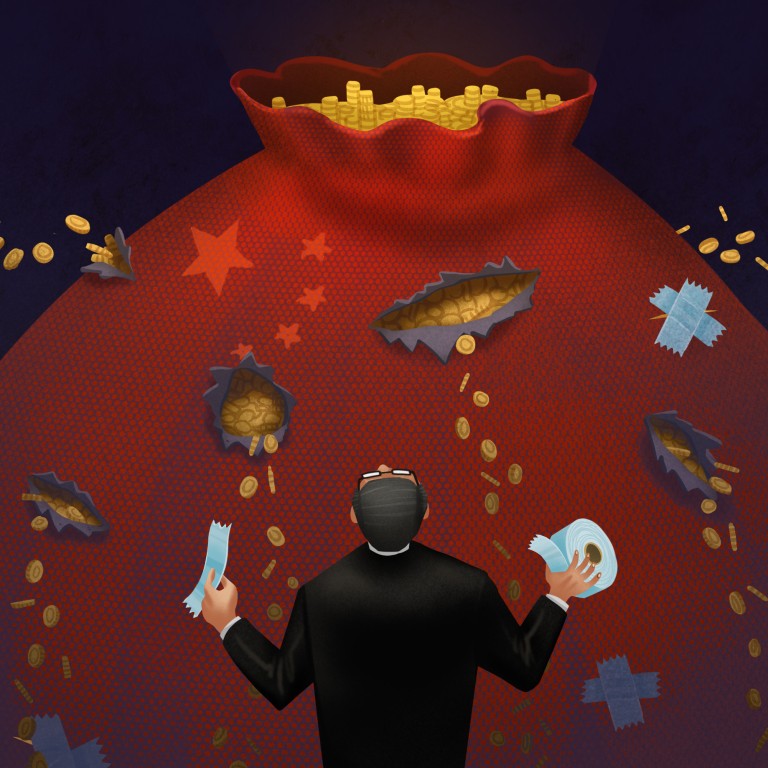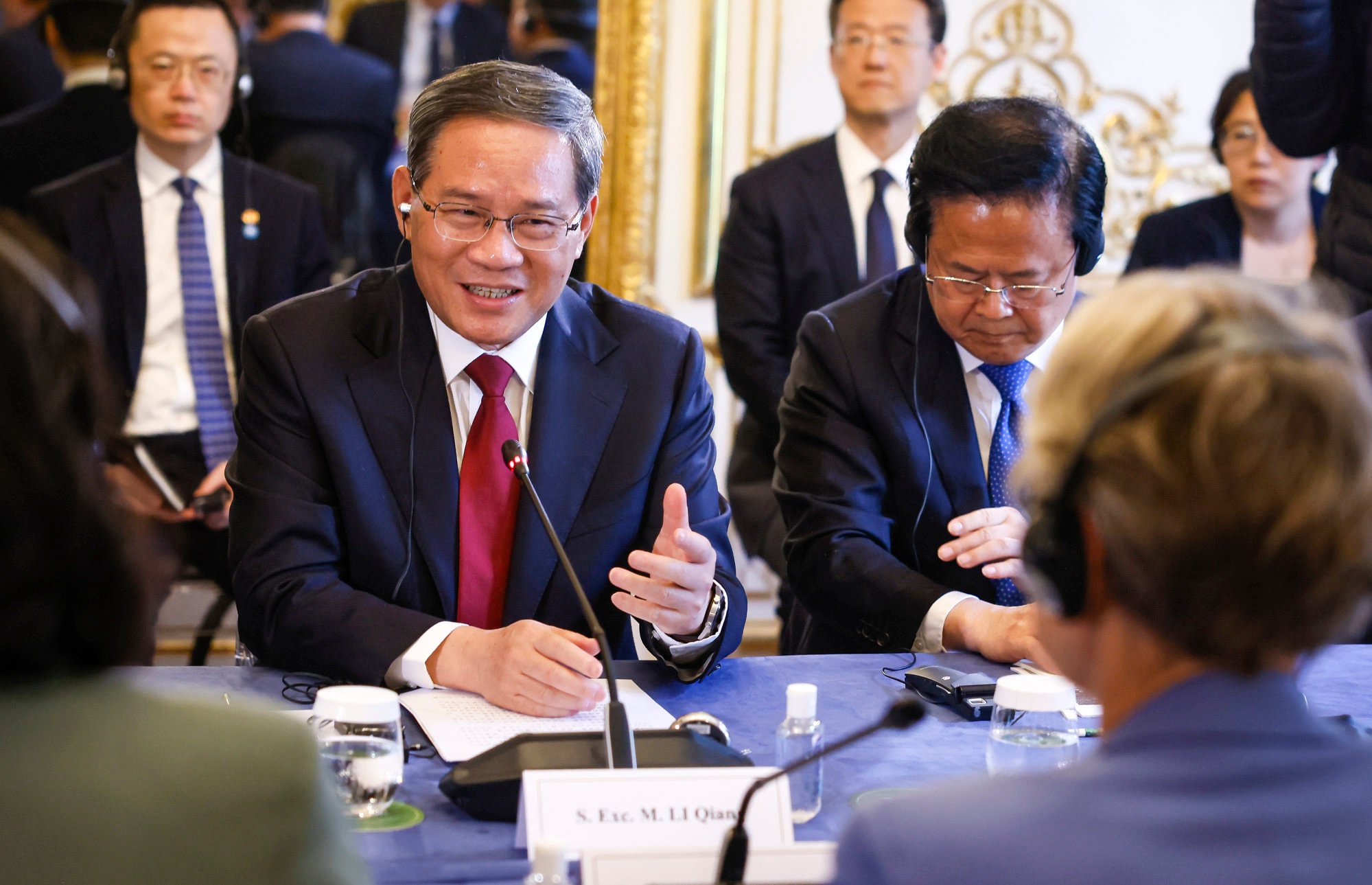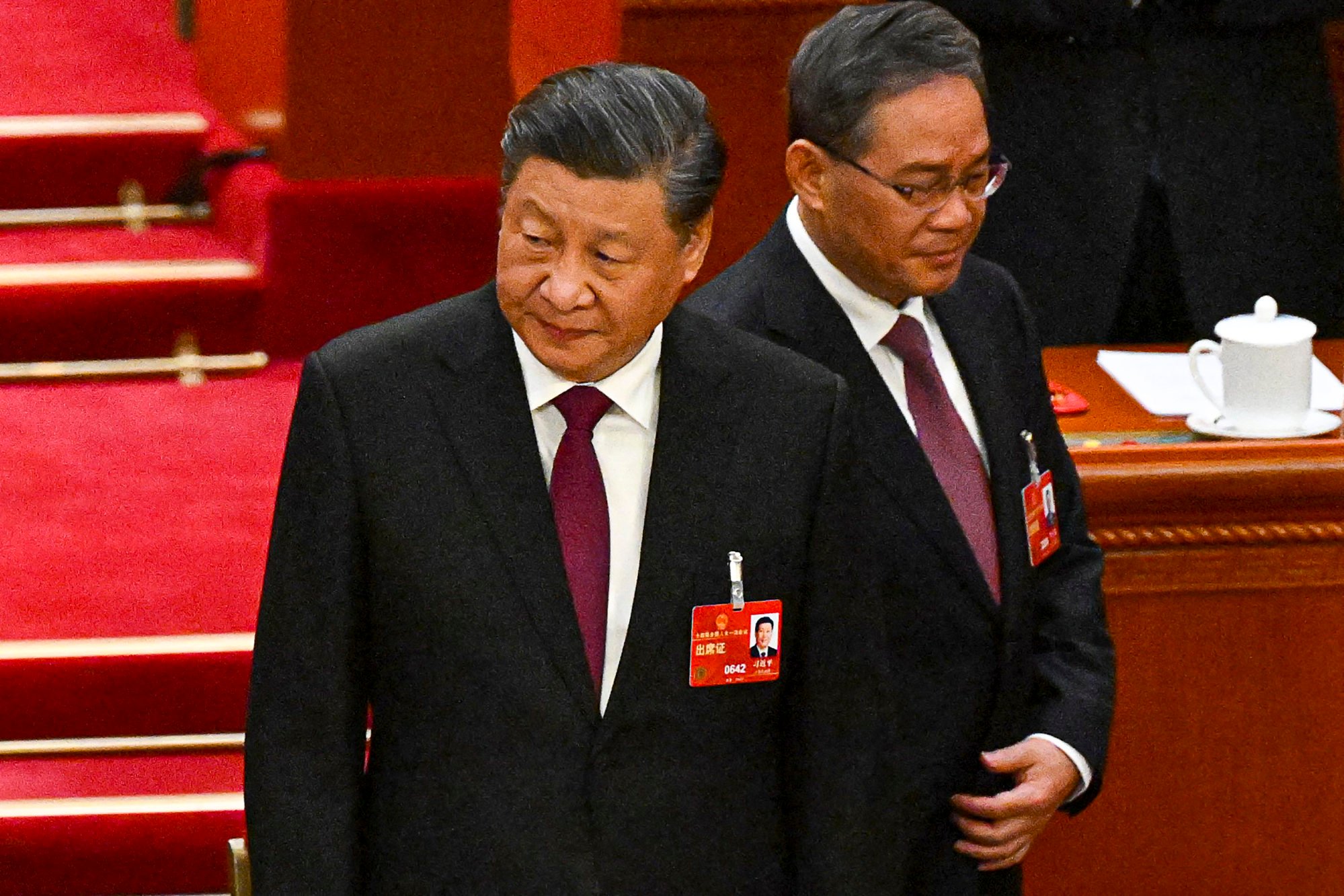
How China’s economic crisis serves as unparalleled trial by fire for Premier Li Qiang
- In his five months as premier, Li Qiang has been on the move both domestically and abroad, touting President Xi Jinping’s agenda while trying to empower the economy
- But Li’s policy toolbox appears restrained, and it has China watchers wondering if more concrete actions will be taken to restore confidence in the economy
The unprecedented three-year pandemic and Washington’s decoupling attempts since 2018 have severely disrupted China’s economic ecosystem, leading to record-high youth unemployment, a worsening property crisis, a reluctance among households to spend, faltering investor confidence, deflation risks and inadequate tech capabilities.
Under President Xi Jinping, the most powerful Chinese leader since Deng Xiaoping, Li has taken centre stage in handling the ongoing economic crisis since June.

The 63-year-old Li’s return to Shanghai was particularly notable, given that it was where he suffered the biggest crisis of his four-decade political career. As the city’s Communist Party secretary from 2017-22, he oversaw its widespread and economically crippling Covid-induced lockdowns last year.
Analysts say that getting people to spend again, by raising confidence, will be a difficult challenge. And some have expressed doubts about his economic tactics, policy coordination and work priorities.
“He has the political backing to launch bold reforms and economic policies,” said Chen Gang, deputy director of the National University of Singapore’s East Asian Institute. “The key issue is the timing, or when to stimulate the economy and announce a new reform package.”
Li, who climbed the bureaucratic ladder in the rich eastern provinces of Zhejiang and Jiangsu, as well as Shanghai, has spent his initial months as premier taking a panoramic view of China’s economy. Some of the most pressing concerns include China’s less-developed western region, heavily indebted local-level governments, cabinet policymaking, and coping with the impact of external pressures.
Unlike his predecessors such as Zhu Rongji, Wen Jiabao and Li Keqiang, the current premier did not get five years to familiarise himself with central government operations and national economic affairs before assuming the position.
Premier plays up China’s economic outlook, hits out at West over ‘de-risking’
In addition to the Shanghai trip, Li Qiang toured eight provinces and municipalities in the past five months. During his first stop, in the central province of Hunan, the premier toured factories making electric vehicles, high-speed locomotives and construction machinery, giving him a look at China’s progress in advanced manufacturing. He also visited the southwestern border region of Yunnan in late April to inspect the local poverty-alleviation campaign.
Neil Thomas, a fellow for Chinese politics at the Asia Society Policy Institute, said that Xi’s support of Li stems from his loyalty and staying true to the president’s vision.
“Economic goals must always be balanced with diplomatic, ideological and security concerns, especially under Xi’s leadership,” Thomas said.
At his first cabinet meeting on March 17, three days after his appointment, Li positioned the State Council as the thorough implementer of decisions by the Communist Party Central Committee headed by Xi.
The economic situation has deteriorated since Li [was named premier]
Public comments by leadership have indicated that bolstering China’s economic growth is high on their list of policy priorities.
China’s 6.3 per cent headline GDP growth in the second quarter, year on year, was considered weak considering the low comparison base with the same period last year. In terms of sequential growth, the second quarter GDP rose only 0.8 per cent, down from 2.2 per cent in the first quarter.
“The economic situation has deteriorated since Li [was named premier], increasing the pressure for him to deliver,” said Max J. Zenglein, chief economist at the Mercator Institute for China Studies.
No bright spots for China’s economy. Calls grow for property, spending action
However, “Li needs to operate within predefined corridors that limit options to revive the economy,” Zenglein said. “Most importantly, a massive infrastructure-driven stimulus is off the table for now. The latest efforts to reassure the private sector are surely important, but these need to be seen in the context of a more restrictive political economy, too.”
The Politburo has mapped out major policy changes – including “optimising the real estate policy in a timely manner” and boosting Big Tech and private-sector development – to help lift the sputtering economy out of the doldrums.
Tailwinds have also been seen as some of Xi’s overriding principles – from “houses are for living in, not for speculation”, introduced in late 2016, to preventing the blind expansion of capital since late 2020 – have been suspended if not reversed.
And recently, this has been accompanied by one charm offensive after another, as leadership tries to reassure domestic private entrepreneurs and foreign investors. However, the stimulus measures currently being utilised are a far cry from those used to counter the 2008 global financial crisis.
And scepticism remains about what type of impact newly implemented policies will have on the economy.
“I’m a little bit confused,” an onshore investor told the Post on condition of anonymity, citing the differences in what they’ve been told by Premier Li and what the Party Congress said in October. “I’m doubtful about exactly how much space will be given to execute his agenda. Because, I think, we all know who calls the shots.”
Morgan Stanley economists also mentioned that many financial clients suggested they were reluctant to engage with China meaningfully, owing to worries about the persistent economic sluggishness, limited visibility in the long-term outlook, a significantly dampened private sector, and shrinking policy room.
“These pushbacks likely reflect the apprehension that growth is no longer a priority in China, the unintended impact – or scarring effect – of the abrupt transition in governance model that kicked off in mid-2021,” according to a research note released on August 3. “In particular, this may have led to the impression that considerations between security/sustainability and growth are static rather than dynamic.”
China bets on better policy enforcement to save economy, vows more help coming
Derek Scissors, a resident scholar with the American Enterprise Institute and chief economist of China Beige Book, also pointed to a policy dilemma, as conventional stimulus would work for only a year, at most, and more borrowing to fund construction would just dig the debt hole deeper.
Granting more rights to private firms, if implemented, would be beneficial, but it would take quite a long time. And there are lingering concerns that much of what leaders have promised consists of empty words, not supported by concrete action.
“Right now, Beijing is promising too many things to be able to see the true priorities,” Scissors said. “The third plenum [of the 20th CPC Central Committee] is the right time to see if there’s been a meaningful policy shift.”
Beijing is due to convene the committee’s third plenary session – featuring about 400 top cadres – later this year, and long-term economic policies are expected to be discussed.
We should think about whether the current economy is at a turning point
Domestic academics and policy circles largely focus on structural issues and long-term growth, with concerns of “Japanification”, which led to Japan’s lost decades. There are already some similarities between the two nations, including their demographic structure, slumping property market, declining consumer prices and weak domestic demand.
“We should think about whether the current economy is at a turning point. If it is, the growth will continue to fall, and an ‘L-shaped’ curve will show up again,” Liu Shangxi, head of the Ministry of Finance’s research academy, was quoted as saying by the Economic Observer business newspaper late last month.
L-shaped recoveries are characterised by a slow rate of recovery, with persistent unemployment and stagnant economic growth.
Liu was among seven economists invited by the Chinese premier in early July to offer their suggestions.
China’s average economic growth rate during the pandemic-hit 2020-22 was 5.2 per cent – close to the minimum requirement that Beijing has set to double its economic size by 2035.

The premier’s economic-revival plan, regardless of whether it serves short-term goals or long-run objectives, also needs help from other heavyweights in Xi’s inner circle, including executive vice-premier Ding Xuexiang and vice-premier He Lifeng, who is in charge of finance.
Additionally, some priorities, such as national security and a bolstering of China’s self-reliance, which will challenge external relations, could weigh on the economy in the long run.
“While I do not expect China to soften its national security and self-reliance goals, I do think that authorities will be encouraged to moderate the messaging around them,” said Alfredo Montufar-Helu, head of Conference Board’s China Centre for Economics and Business.
“The Chinese government needs a stable external environment to focus its attention on the economy.”


